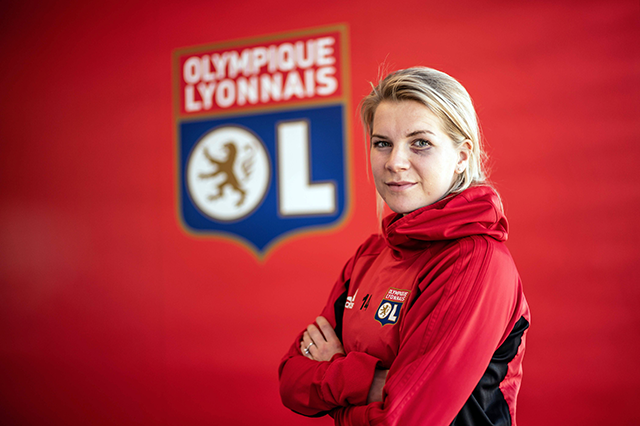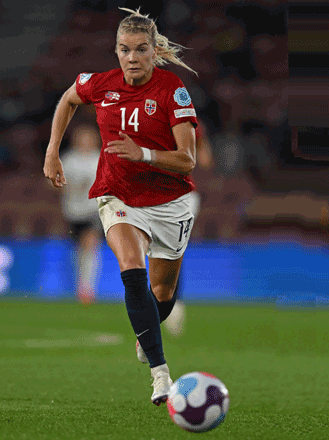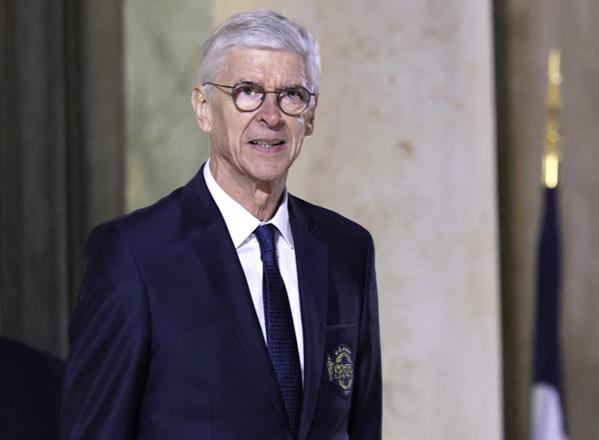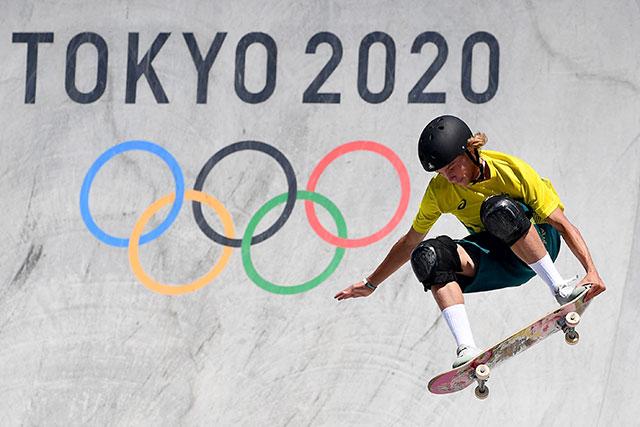You are here
Women's game must not be forgotten in football's fight for survival, says Hegerberg
By AFP - Apr 12,2020 - Last updated at Apr 12,2020

Olympique Lyonnais' Norwegian forward and first woman Ballon d'Or winner Ada Stolsmo Hegerberg poses at The Parc Olympique Lyonnais Stadium in Decines Charpieu on the outskirts of Lyon on February 18, 2019 (AFP photo by Jeff Pachoud)
MADRID — Ada Hegerberg's voice in football is a powerful one given she claimed the first ever women's Ballon d'Or, owns four Champions League titles with Lyon and has earned her place among the finest female players on the planet, all by the age of 24.
Hegerberg's talent is matched too by a fearlessness in standing up for the rights of her gender in her sport.
She refused to play for Norway at last year's World Cup due to perceived inequality with the men's team and drew widespread praise after collecting her Ballon d'Or in 2018, having refused to indulge a request that she 'twerk' on stage.
Yet even for one of the game's most successful players, the sprawling effects of the coronavirus pandemic bring doubt. "It's a strange situation for everyone," Hegerberg says in a telephone interview with AFP. "Everything is uncertain."
Unable to see her husband in Poland or her family in Norway, Hegerberg is confined to her apartment in the French city of Lyon, where she is recovering from the anterior cruciate ligament injury she suffered in January.
She has an exercise bike, physios, who visit but maintain the health measures in place, and history books. "I'm reading Ken Follett at the moment — history in the 13th century, it takes your mind off things a bit," she says.
Fight for prominence
But Hegerberg is concerned about the future too and she is adamant the women's game must not be forgotten in football's fight for survival.
"It's very, very important women's football doesn't lose position," Hegerberg says. "Obviously men's football is in first place, with all the questions about money and when leagues will restart, but it is very important women's football pushes for position as well.
"We will be sitting in the second row in all of this but we can't fade into the background."
Most women's teams in Europe operate at a financial loss, relying instead on the profits of men's sides until progress allows them to support themselves.
But football's economic crash as a result of coronavirus means nothing is guaranteed.
Financial struggle
With even the world's biggest clubs taking measures to avoid extinction, the fear is staff, players and even teams on the women's side will be deemed expendable.
"Women's football is still in its beginning phase and we have to push for the same rights, whatever gets decided, and we have to push for the same changes we were pushing for before," says Hegerberg.
"We also need men's football to be stable so we have our position and get that financial help before we can support ourselves.
"If you see how the biggest men's clubs are struggling, you can only imagine how this is going to affect women's teams."
Players have come under pressure to help clubs and their lower-earners through wage cuts but blanket agreements have proven difficult to achieve.
Lyon are yet to confirm reductions but Hegerberg, whose reported 400,000-euro ($440,000) annual salary puts her among the highest earners in the women's game, insists players are ready to help.
"We are in discussions at the moment but for me, as an individual player, I'll do whatever is necessary to help the club," she says.
"We can all make a difference. We all have our own opinions but my view is, 'how we can help?' I can't speak for all clubs but players want to make sure we come out of this. Crises can create solidarity too."
Lyon were three points clear at the top of the French women's Division 1 when the action was halted. The shame for the sport overall was that the pandemic developed just as women's football was hitting its stride, with record crowds turning out across Europe in the slipstream of the 2019 World Cup.
The danger is momentum will be lost. "Of course there is that danger, there have been a lot of positive things happening in recent months and we have to keep pushing for it, now more than ever, because it won't happen by itself," says Hegerberg.
"It's very hard to say where women's football will be in weeks, months or even years, the uncertainty is everywhere right now. It would be a shame to cancel the season, absolutely, we all want to be doing what we used to do.
"But there are so many other parts of society at risk at the moment, it's hard for me to say 'we have to start the league again'. We have to sit still. We just have to make sure we are ready."
Related Articles
LYON — The prolific Ada Hegerberg wants to cap her return from the international wilderness by firing Norway back among the elite at the Wom
LAUSANNE — FIFA's controversial project to stage the World Cup every two years instead of the current four-year cycle is back on the table o
TOKYO — The USA suffered deep disappointment on the track at the Tokyo Olympics on Thursday while Australian teen Keegan Palmer flew to a st















